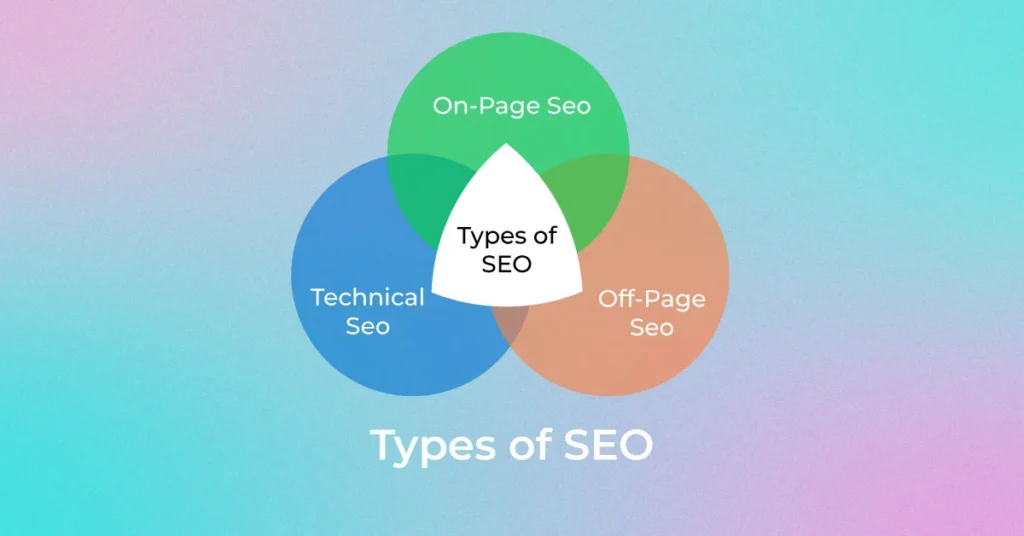In today’s competitive digital landscape, having the right SEO tools for digital marketing is no longer optional — it’s essential. Whether you are a small business owner, a digital marketer, a beginner, or an agency professional, these tools help you optimize your website, track performance, and gain an edge over your competitors. This guide will explore the top SEO tools, their features, and how to use them effectively to boost your online success.
For businesses looking for a comprehensive solution, The SEO Auditor provides expert insights and actionable recommendations to improve your website’s search performance.
What Are SEO Tools in Digital Marketing?
SEO tools are software applications or platforms designed to help businesses and marketers improve their website’s visibility on search engines. These tools perform various tasks, including:
- Keyword research: Identify high-performing keywords to target in your content.
- Website audits: Detect technical issues, broken links, and errors.
- Backlink analysis: Track and evaluate backlinks for better link-building strategies.
- Content optimization: Enhance on-page SEO by improving meta tags, headings, and keyword density.
- Analytics and reporting: Monitor traffic, conversions, and user behavior.
By leveraging these tools, businesses can streamline their SEO efforts, save time, and make data-driven decisions to improve rankings and drive organic traffic.
The 4 Main Types of SEO Tools

Table of Contents
SEO tools can be categorized into four primary types, each serving a unique purpose in your digital marketing strategy.
1. Technical SEO Tools
Technical SEO tools focus on the backend aspects of your website. They ensure that search engines can crawl, index, and understand your site efficiently. Key features include:
- Checking site speed and performance
- Detecting broken links and errors
- Analyzing site architecture and sitemap structure
Popular Technical SEO Tools: Screaming Frog, Google Search Console, Sitebulb
2. On-Page SEO Tools
On-page SEO tools help optimize content directly on your website. These tools are crucial for improving your site’s relevance and authority for specific keywords.
Key Features:
- Keyword optimization for headings, meta descriptions, and content
- Content readability and engagement metrics
- Internal linking suggestions
Popular On-Page SEO Tools: SEMrush, Ahrefs, Moz, Yoast SEO
3. Off-Page SEO Tools
Off-page SEO tools monitor activities outside your website that impact rankings, such as backlinks and social signals.
Key Features:
- Backlink analysis and tracking
- Competitor backlink strategy monitoring
- Outreach and relationship management
Popular Off-Page SEO Tools: Ahrefs, Majestic SEO, SEMrush
4. Analytics & Reporting Tools
Analytics tools provide insights into how users interact with your website and the effectiveness of your SEO campaigns.
Key Features:
- Traffic and visitor behavior tracking
- Conversion tracking and goal completion
- Campaign performance reporting
Popular Analytics Tools: Google Analytics, Hotjar, Crazy Egg
Top 10 SEO Tools for Digital Marketing
Here’s a curated list of the most powerful SEO tools for digital marketing in 2025, suitable for beginners and professionals alike.
| Tool | Best For | Free/Paid | Key Features |
|---|---|---|---|
| SEMrush | Keyword research, competitor analysis | Paid (Free trial available) | SEO audits, backlink tracking, content analysis, PPC tools |
| Ahrefs | Backlink analysis, SEO research | Paid | Competitor insights, keyword explorer, site audits |
| Moz | On-page SEO, keyword tracking | Paid | Site crawl, page optimization, keyword suggestions |
| Ubersuggest | Keyword research, content ideas | Free & Paid | SEO audit, keyword ideas, traffic insights |
| Google Analytics | Traffic & conversion tracking | Free | User behavior, traffic sources, conversion goals |
| Google Search Console | Indexing & site performance | Free | Crawl errors, search performance, structured data |
| Screaming Frog | Technical SEO audits | Free & Paid | Site crawl, broken link detection, page analysis |
| Yoast SEO | On-page SEO for WordPress | Free & Paid | Content optimization, readability check, metadata editor |
| Majestic SEO | Link building & backlinks | Paid | Link analysis, citation flow, trust flow |
| KWFinder | Keyword research & difficulty | Paid | Long-tail keyword suggestions, SERP analysis |
Free SEO Tools for Digital Marketing
For businesses with limited budgets or beginners, free SEO tools provide excellent value and essential functionality.
Top Free SEO Tools:
- Google Search Console: Monitor website indexing, fix errors, and optimize search performance.
- Ubersuggest: Generate keyword ideas, analyze content, and check traffic.
- Yoast SEO (Free version): Optimize on-page SEO for WordPress websites.
- Google Analytics: Track visitors, behavior, and conversion metrics.
- AnswerThePublic: Discover user questions and search intent.
Pros of Free SEO Tools:
- Cost-effective for startups and small businesses
- Beginner-friendly interfaces
- Useful for basic keyword research and site audits
Cons:
- Limited data and features compared to paid tools
- May require multiple tools to cover all SEO aspects
Best Paid SEO Tools for Digital Marketing
Paid SEO tools provide comprehensive data, advanced features, and detailed insights suitable for agencies, enterprises, and serious marketers.
Why Invest in Paid Tools:
- More accurate and extensive data
- Advanced reporting and analytics
- Competitor monitoring and backlink tracking
- Automation features to save time
Examples of Paid SEO Tools: SEMrush, Ahrefs, Moz Pro, Majestic SEO, KWFinder
SEO Tools for Beginners
Beginners often feel overwhelmed by the number of available SEO tools. To start effectively:
- Focus on basics first: Keyword research, on-page SEO, and analytics
- Start with free tools: Google Search Console, Ubersuggest, Yoast SEO
- Learn gradually: Use tutorials and YouTube guides to master features
- Track results: Use Google Analytics to monitor performance
Tips for Small Businesses & Beginners:
- Avoid investing in all tools at once
- Prioritize tools that save time and provide actionable insights
- Set clear goals for what you want to achieve with SEO
How to Choose the Right SEO Tool for Your Business
Selecting the right SEO tool depends on your goals, budget, and level of expertise. Here are some key factors to consider:
- Budget: Determine how much you are willing to spend on SEO tools.
- Business size: Small businesses may need simpler tools, while agencies need comprehensive solutions.
- Ease of use: Choose tools with intuitive dashboards and beginner-friendly tutorials.
- Features: Match the tool’s capabilities with your business needs (e.g., keyword research, backlinks, technical audits).
- Support & resources: Ensure the tool provides customer support and learning resources.
Pro Tip: Start with free tools and upgrade to paid options as your SEO strategy matures.
SEO Tools YouTube Resources
YouTube is a valuable resource for learning SEO tools in action. Many channels provide step-by-step tutorials, practical tips, and case studies.
Recommended Channels:
- Neil Patel: Digital marketing and SEO tutorials.
- Ahrefs YouTube Channel: In-depth SEO guides and tutorials.
- Backlinko by Brian Dean: Practical strategies for ranking higher.
These resources help beginners and advanced marketers understand the practical use of SEO tools for real-world results.
FAQs – People Also Ask
Q1: What are SEO tools in digital marketing?
SEO tools are software or platforms that help optimize websites for better search engine rankings, track performance, and improve online visibility.
Q2: Which SEO tool is best for beginners?
For beginners, tools like Google Search Console, Ubersuggest, and Yoast SEO (Free) are highly recommended due to their ease of use and essential features.
Q3: What are the 4 types of SEO?
The four main types of SEO tools are: Technical SEO, On-Page SEO, Off-Page SEO, and Analytics & Reporting Tools.
Q4: Can I use free SEO tools for a business website?
Yes, free SEO tools like Google Search Console, Google Analytics, and Ubersuggest are effective for small business websites and beginners.
Q5: How do paid SEO tools improve website ranking?
Paid tools provide advanced insights, competitor analysis, keyword research, backlink tracking, and automation, allowing businesses to optimize their websites more effectively and achieve better rankings.
Conclusion
Investing in the right SEO tools for digital marketing can transform your online presence, drive organic traffic, and increase conversions. From free beginner-friendly tools to powerful paid platforms, there’s an option for every business and marketer.
For a comprehensive SEO audit and actionable recommendations, explore The SEO Auditor, your go-to resource for improving website performance and search engine rankings.
Start using these tools today and implement these 10 powerful strategies to achieve measurable results, outperform competitors, and succeed in the ever-evolving digital world.

